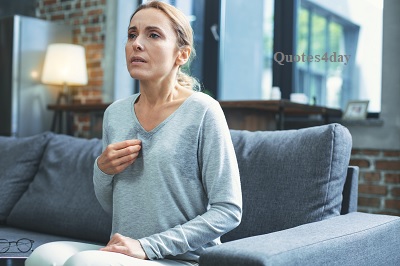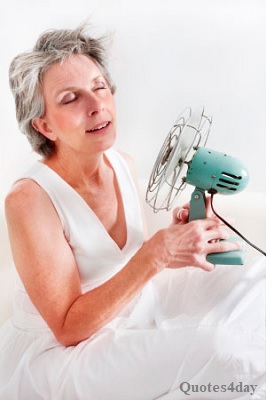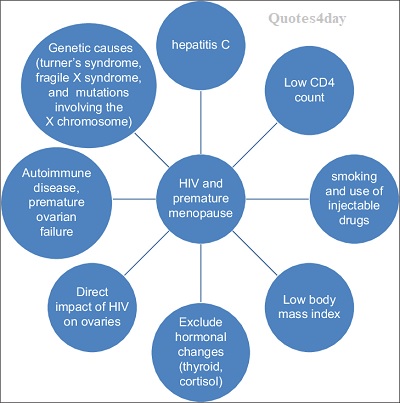Menopause is a special period in a woman’s life. And even if you are still far from it, knowing about it is just as important as about puberty or the first menstruation. But these questions are so delicate that it is embarrassing to talk about them even with the closest. Therefore, today We will help you learn more about menopause and menopause.

Definition of menopause
- Menopause is a general concept that includes premenopause, menopause itself, and postmenopause. This period begins when the function of the ovaries is just beginning to fade and continues after the complete cessation of menstruation.
- Menopause is the moment when a woman stops menstruating. “Reference point” – a year after the last menstruation.
It turns out that menopause is a broader concept, and menopause is only one of its three components.
Signs and Symptoms of Menopause
Normally, menopause occurs at the age of 45-50, but the first symptoms appear even earlier. What you should pay attention to:
- Hot flashes;
- Irritability;
- Fatigue;
- Arrhythmia;
- Pressure surges;
- Dryness of the vagina;
- Decreased libido.
As menopause approaches, a woman may experience severe PMS, chest pain, and mood swings. Particularly distressing is the decrease in sexual desire and dryness of the genital organs. All these changes are associated with the restructuring of the hormonal background.
In premenopause, it is important to monitor your health and visit a gynecologist and mammologist at least once every six months.
Health Considerations During Menopause
Hot flashes are a feeling of warmth in the upper body or on the face. A woman can be thrown into a fever, it seems to her that it is much warmer around than it actually is. There are other signs:
- Redness of the face;
- Dyspnea;
- Cardiopalmus;
- Dizziness;
- Weakness.
The duration and frequency of hot flashes are individual. Often they are accompanied by a feeling of anxiety, and irritability. In this case, you should seek psychological help.
Hot Flashes During Menopause?
This is a normal condition during hormonal changes in the body, but if hot flashes are often disturbing and interfere, you can correct them. First of all, you should consult a doctor. Strong and frequent attacks are removed with hormonal drugs. Phytotherapy is also prescribed. There are several ways to reduce a small tide:

- Relax: emotional stress provokes a rush;
- Locally lower the temperature: wash, take a cool shower, or make a cooling mask;
- Unbutton the top button and wear looser, looser clothing;
- Ventilate the room.
Doctors recommend reconsidering your lifestyle, if possible, giving up smoking and alcohol.
How to delay menopause?
No way. Everybody is different, so women go through menopause at different ages. Definitely, doctors recommend monitoring reproductive and general health, exercising, eating well, and getting enough sleep – but all this does not guarantee you a late menopause.
If you suspect you’re getting close to her, don’t worry. This is a natural process for the body, which must be experienced. The extinction of the reproductive function is as natural as its development. In postmenopause – the last stage of menopause – there is life!
During menopause, you need to be more careful about your health and visit doctors regularly. Then your life will be no less fulfilling and beautiful than it was before him.
Nutrition during menopause
There are no specific dietary guidelines for menopause. Doctors recommend limiting the consumption of sweet, salty, and fatty foods, and introducing fish and seafood, fresh vegetables, and fruits into the diet.
If necessary, you can reduce the number of calories consumed, but only after consulting a nutritionist. It is undesirable to drink a lot of coffee, sweet soda, and alcohol. With the fragility of hair and nails, you can drink a course of vitamins and minerals.
Signs of menopause
As we have already found out, menopause is the period from the precursors of menopause to postmenopause. Let’s dwell on the signs that bother women before the time of menopause and after it:
- Soreness of the chest;
- Age-related changes in muscles and bones;
- Apple weight gain;
- Atrophy of the mucous membranes: dryness in the vagina, discomfort during urination;
- Insomnia.
Against the background of hormonal changes, chronic diseases can worsen, especially of a gynecological and endocrine nature. Therefore, women should note each symptom and, if necessary, consult a doctor.
It will be interesting How to Establish a Sleep Pattern
Causes of early menopause
The onset of menopause before the age of 45 is considered early. The main reason is ovarian failure syndrome. The supply of follicles dries up, the ovaries produce fewer and fewer hormones. Over time, estrogen production stops altogether.
The causes of early menopause (“peak” menopause) are completely different:
- Removal of the uterus with ovaries;
- Autoimmune diseases;
- Endocrine diseases;
- Chemotherapy or radiotherapy;
- The use of hormonal contraception;
- Stress, malnutrition, lack of sleep;
- Abortions;
- Bad ecology;
- Hereditary predisposition.
There are not very many cases of menopause at 35-40 years old. Women approaching the onset of menopause attribute the violation of the cycle or the loss of menstruation to it. But often the point is still in gynecological or endocrine diseases, which are successfully treated when contacting a doctor.

How does the cycle change before menopause?
Menstruation becomes irregular: the cycle may be normal one month, long or short the next. Sometimes menstruation does not come at all, or there may be spotting between them. The intensity of bleeding often changes. Some women experience PMS more acutely.
Getting closer to the setting of menopause, “false” PMS may occur. A woman expects her period, and experiences almost all the symptoms of PMS, but menstruation does not occur.
Menopause questions are nothing to be ashamed of! Menopause and menopause are as natural as puberty, pregnancy, and childbirth. Do not be afraid of hormonal changes: with the help of doctors and attention to your health, it will pass without complications.
TOP questions about menopause
1. What is a climax?
This is the period from the beginning of the extinction of the reproductive function to the end of this process.
2. At what age does menopause begin?
The first signs of menopause appear at the age of 45+. At the age of 50, he is diagnosed unmistakably.
3. What is menopause?
This is the complete cessation of menstruation in a woman. After menopause, she can no longer get pregnant.
4. When does menopause occur?
On average, menopause occurs at age 50, but this indicator is individual for each woman.
Take care of your health at any age, and then menopause will pass without much shock to the body. And if you have already entered menopause, share your experience.


